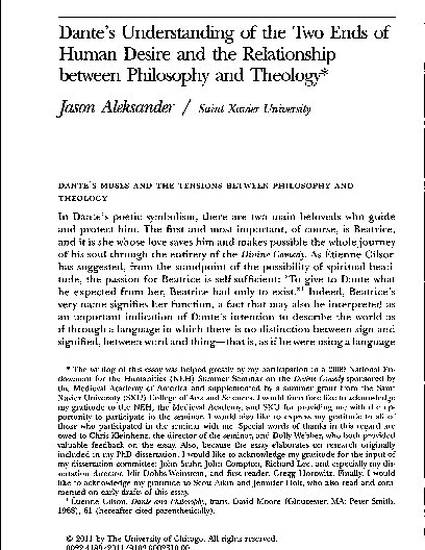
Article
Dante’s Understanding of the Two Ends of Human Desire and the Relationship between Philosophy and Theology
The Journal of Religion
(2011)
Abstract
I discuss Dante’s understanding that human existence is “ordered by two final goals” and how this understanding defines philosophy’s and theology’s respective scopes of authority in guiding human conduct. I show that, while Dante devalues the philosophical authority associated with the traditional Aristotelian emphasis on the significance of contemplative activity, he does so in order to highlight philosophy’s ethico-political authority to guide human conduct toward its “earthly beatitude.” Moreover, I argue that, although Dante subordinates earthly beatitude to spiritual beatitude, he nonetheless maintains that philosophy’s authority to reveal a path to spiritual beatitude requires its fundamental independence from theology.
Keywords
- Dante,
- Divine Comedy,
- Monarchia,
- Convivio,
- political theology
Disciplines
Publication Date
April, 2011
DOI
10.1086/658107
Publisher Statement
© 2011 by The University of Chicago. All rights reserved.
Citation Information
Jason Aleksander. "Dante’s Understanding of the Two Ends of Human Desire and the Relationship between Philosophy and Theology" The Journal of Religion Vol. 91 Iss. 2 (2011) p. 158 - 187 ISSN: 0022-4189 Available at: http://works.bepress.com/jason-aleksander/8/
